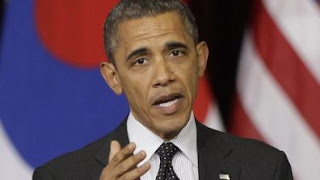Zara Phillips wedding: Ceremony at Edinburgh church
 The Queen's granddaughter Zara Phillips has married England rugby player Mike Tindall at a ceremony in Edinburgh.The Queen and Duke of Edinburgh were among those at the wedding in Canongate Kirk on a sunny Royal Mile. Read more ....
The Queen's granddaughter Zara Phillips has married England rugby player Mike Tindall at a ceremony in Edinburgh.The Queen and Duke of Edinburgh were among those at the wedding in Canongate Kirk on a sunny Royal Mile. Read more ....
India 'Slutwalk' sex harassment protest held in Delhi
A rally has taken place in India's capital inspired by the "Slutwalk" protests held in a number of countries.

Most of the marchers in Delhi were soberly dressed
The protest is to challenge the notion that the way a woman looks can excuse sexual abuse or taunting - "Eve teasing" as it is known in India.Hundreds took part in Delhi, though there was little of the skimpy dressing that has marked protests elsewhere. Read more ......
Bhutan spreads happiness to UN

Lhatu Wangchuk admits his vision is
Utopian, but should be worked on
Bhutan has put the politics of happiness on the UN's agenda.This week the General Assembly adopted a non-binding resolution that aims to make happiness a "development indicator".Bhutan's ambassador Lhatu Wangchuk told the BBC the next step was to help UN members better understand the concept.He admitted some were sceptical when Bhutan started lobbying for the resolution 10 months ago. But ultimately it won 66 co-sponsors, including the UK. Read more....
Zara Phillips wedding: Ceremony at Edinburgh church
 The Queen's granddaughter Zara Phillips has married England rugby player Mike Tindall at a ceremony in Edinburgh.The Queen and Duke of Edinburgh were among those at the wedding in Canongate Kirk on a sunny Royal Mile. Read more ....
The Queen's granddaughter Zara Phillips has married England rugby player Mike Tindall at a ceremony in Edinburgh.The Queen and Duke of Edinburgh were among those at the wedding in Canongate Kirk on a sunny Royal Mile. Read more ....
 The Queen's granddaughter Zara Phillips has married England rugby player Mike Tindall at a ceremony in Edinburgh.
The Queen's granddaughter Zara Phillips has married England rugby player Mike Tindall at a ceremony in Edinburgh.The Queen and Duke of Edinburgh were among those at the wedding in Canongate Kirk on a sunny Royal Mile. Read more ....
India 'Slutwalk' sex harassment protest held in Delhi
A rally has taken place in India's capital inspired by the "Slutwalk" protests held in a number of countries.
 |
| Most of the marchers in Delhi were soberly dressed |
The protest is to challenge the notion that the way a woman looks can excuse sexual abuse or taunting - "Eve teasing" as it is known in India.
Hundreds took part in Delhi, though there was little of the skimpy dressing that has marked protests elsewhere. Read more ......
 |
| Lhatu Wangchuk admits his vision is Utopian, but should be worked on |
Bhutan has put the politics of happiness on the UN's agenda.
This week the General Assembly adopted a non-binding resolution that aims to make happiness a "development indicator".
Bhutan's ambassador Lhatu Wangchuk told the BBC the next step was to help UN members better understand the concept.
He admitted some were sceptical when Bhutan started lobbying for the resolution 10 months ago. But ultimately it won 66 co-sponsors, including the UK. Read more....
Iranian sentenced to blinding for acid attack pardoned
 |
| Ameneh Bahrami said she had reprieved the man "for my country" |
An Iranian man who was ordered to be blinded for carrying out an acid attack on a woman has been pardoned by his victim, state television has said.
Ameneh Bahrami had demanded qisas, a rarely used retributive justice under Sharia law, but the report said she had foregone that right at the last minute. Read more....
Afghanistan: Suicide attack in Lashkar Gah 'kills 11'
 |
| The attack targeted the gate of the police headquarters in Lashkar Gah |
Ten Afghan policemen and a child have been killed in a suicide attack in the southern Afghan city of Lashkar Gah, officials say.
The attacker targeted the gate of the police headquarters in the city, the capital of Helmand province. Read more....
Syrian unrest: 'Many deaths' as army attacks Hama




















